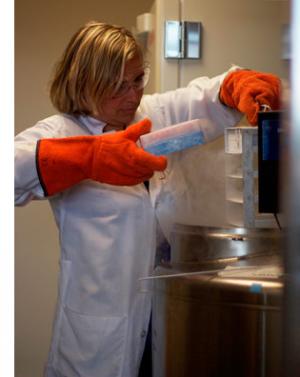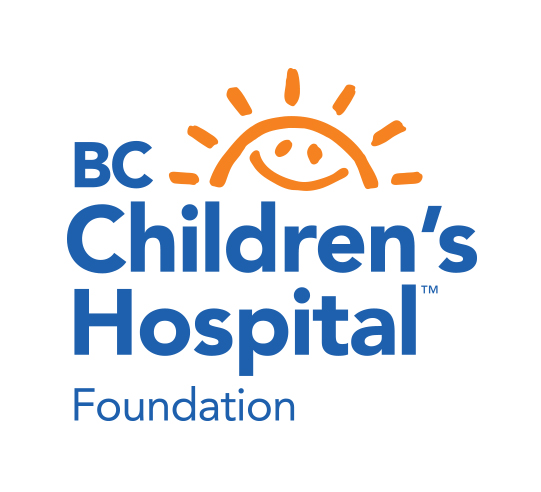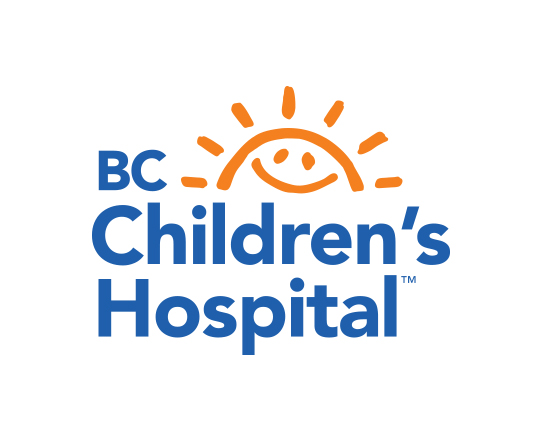How can you help? Become a secret superhero!
This video will tell you all about the BC Children's Hospital BioBank and how you can help. To become a secret superhero, email the BC Children’s Hospital BioBank Administration at biobank@cw.bc.ca.
Collecting samples
The BioBank relies on donations of samples from children, youth, women and family members who are being treated BC Children's Hospital or at BC Women’s Hospital. If a family would like to donate to the BioBank, samples will be obtained as part of a routine procedure that’s already scheduled – families will not be asked to make appointments for additional procedures in order to donate to the BioBank. In some cases, the BioBank accepts samples that would normally be disposed of after a routine procedure, so a participant would not be asked to give any additional samples.
If a family decides at any time that they want to remove their samples from the BioBank, they are free to do so without any explanation.
For more information about donating samples for medical research:
- View our BC Children's Hospital brochure
- View our BC Women's Hospital + Health Centre maternal brochure
Storing and using samples

After a patient donates to the BioBank, their samples are de-identified and processed in a laboratory where they are frozen and stored. BioBank staff will enter information about the samples and limited, anonymous information about the participant into a secure database. Patient confidentiality is protected by the BioBank, and personal information will never be released to anyone outside of the BioBank.
Scientists submit applications to use BioBank samples in their research. The application process includes an ethical review of proposed research.
BioBank resources & forms
Once a family signs a consent form, samples may be collected. If a family decides at any time that they want to remove their samples from the BioBank, they are free to do so without any explanation. However, the BioBank cannot retrieve samples that have already been provided to scientists for use in research projects.
Forms
- BC Children's Hospital BioBank e-Consent Form
-
BC Children's Hospital BioBank Maternal e-Consent Form (BC Women's Hospital + Health Centre)
- BC Children's Hospital BioBank Revocation / Withdrawal Form
- BC Children's Hospital BioBank Appendix: Current Research at BC Children's
- BC Women's Hospital + Health Centre BioBank Appendix: Current Research at BC Women's
FAQs for patients
- 1. What is the BCCH BioBank?
-
The BCCH BioBank is an institutional biobank that collects biological samples and clinical information from women and children at BC Children’s & Women’s Hospitals that are seeking medical care.
- 2. How does the BioBank help scientist's research?
-
The BioBank allows researchers to access a collection of both pediatric and women’s samples and data after being approved by the research ethics board (REB) in order to fuel their research projects with the aim to improve treatments and health outcomes.
- 3. Where is the BC Children’s Hospital BioBank located?
-
The BC Children’s Hospital BioBank is located on the campus of BC Children's Hospital (BCCH) and BC Women’s Hospital (BCWH) in Vancouver, British Columbia, Canada.
- 4. What type of samples does the BioBank collect?
-
The BioBank collects samples of blood, tissue, bone marrow, urine, saliva, cerebrospinal fluid and pregnancy-related samples such as placenta, cord blood, and maternal blood from patients who are seeking care at either BCCH or BCWH.
- 5. Who can I ask if I want to know more?
-
You can email the BioBank at biobank@cw.bc.ca for more information.
- 6. Where is my personal information kept?
-
The BioBank keeps all personal information in a secure database. Only trained BioBank staff can access this information. Strict security measures are in place to ensure that only authorized people are able to access the database.
- 7. Can my samples be sent to researchers outside of Canada?
-
Samples can be sent to researchers outside of Canada; however, samples will only be sent in a way that ensures participant information that is identifying is not shared. The BioBank adheres to international standards of good medical research practices to ensure that the same strict protection of privacy in Canada applies to samples sent to other countries.
- 8. Who has access to these samples? Who determines what studies are done?
-
The BioBank was established to advance medical research and therapies for numerous diseases. Scientists who need to access biological samples for their research studies must apply to the BioBank, where a scientific committee assesses the merit of the research. In addition to obtaining approval from the BioBank, scientists must also have their research study approved by a Research Ethics Board (REB) before they receive samples from the BioBank. This means that before studies begin, they must be evaluated by a panel of ethicists. The studies must meet certain strict ethical guidelines and international standards of good medical research practices.
- 9. Will researchers know whose sample it is from?
-
The confidentiality of the patient is protected by the BioBank. General information such as patient’s gender, age and type of disease might be given to a researcher; however, identifying information such as patient’s name, birth date, and personal healthcare number (PHN) will never be shared with researchers. The BioBank staff removes all personal information from a sample and replaces it with a non-identifying code, which is used to catalogue the sample and protect your anonymity.
- 10. If I decide not to donate to the BioBank, will it affect my treatment?
-
It is entirely your choice whether to donate. Your decision will not affect your treatment.
- 11. What will the biobanked samples cost me?
-
The BCCH BioBank operates on a cost-recovery basis paid by researchers. It does not cost you anything to donate and store the samples at BioBank.
- 12. Will I know if the samples I donated have helped find a treatment or cure?
-
The BioBank does not release information that identifies which research projects your samples have been used for. Publications that have used BioBank samples will be posted on this website so that participants can read about the types of research that samples are used for.
- 13. What types of research does the BioBank support?
-
The BioBank supports any research that has been ethically approved and has the potential to improve the lives of children, women, and their families in the future. Research can be done through academic, industry, and government funded projects.






